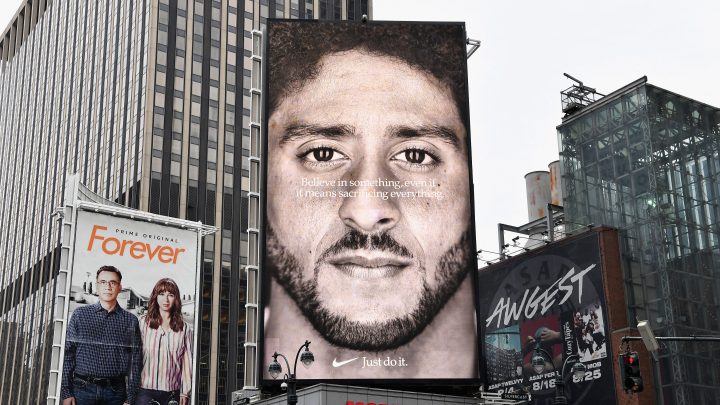
Fewer Americans want brands to take a stand on controversial issues
Fewer Americans want brands to take a stand on controversial issues

A few years ago, it seemed like companies were expected to make statements about everything from racial equity to the war in Ukraine. Well, the tide is turning. A new Bentley-Gallup survey says fewer Americans — 41% — think businesses should take a public stance on current events. That’s down from 48% just a year ago. What happened? And how should brands navigate this?
When deeply polarized politics became the norm, sometime around 2016, Americans were grasping for some sense of control. And Barbara Kahn, a marketing professor at the Wharton School, said people wanted to vote — not just at the ballot box, but with their dollars.
“And they started to turn to business people and think that business people could make a difference,” Kahn said.
And boy, did businesses try. Companies marketed their way through COVID-19 lockdowns, the murder of George Floyd, the fight over LGBTQ and reproductive rights. Now, Kahn said, the messages have become watered down and overwhelming.
“Every time you go to have a beer or drink something you have to decide does this brand agree with my politics or not. I mean that gets old,” Kahn said.
Especially when the messages seem like a ploy to turn a profit. Remember that Pepsi ad where Kendall Jenner unifies Black Lives Matters protesters and police with a fizzy drink?
“Consumers see right through that,” Kahn said.
Cynthia Clark, who authored the Bentley-Gallup study, said consumers are more interested in topics that connect with a brand’s industry. Climate change is high on the list — maybe because manufacturing can have a heavy carbon footprint. Consumers also care about mental health and the way companies support their own workers.
“Companies do have some sort of control over that, right? You know, they provide those benefits,” Clark said.
In the end, consumers also just have different standards for different products. Maybe we don’t care what our toothpaste says about us. But we do care about what our shoes say as we walk through the world in them. Marcus Collins, author of “For the Culture,” said Nike’s deal with Colin Kaepernick was controversial but consistent with the brand and customer.
“The people who saw the world similarly said, ‘Well, I stand with Kaep and therefore I’m buying more Nikes,'” Collins said.
He said Nike took consumption and turned it into a way for customers to show off their values.
There’s a lot happening in the world. Through it all, Marketplace is here for you.
You rely on Marketplace to break down the world’s events and tell you how it affects you in a fact-based, approachable way. We rely on your financial support to keep making that possible.
Your donation today powers the independent journalism that you rely on. For just $5/month, you can help sustain Marketplace so we can keep reporting on the things that matter to you.

















